Health
How Long Can You Live Without Water: Exploring Human Limits and Survival Facts
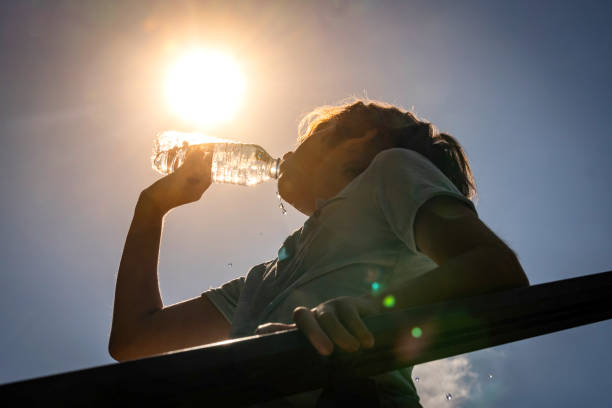
Introduction
Water makes life. In its absence, our bodies cannot properly survive. Then the question is how many days can one last without water?
This question plagues the adventurers, survivalists and people who simply wondered how far humans can go. Here we are going to explore the science, present exciting real scenario stories and facts of survival.
Suppose that we want to examine how water can sustain our life and what we can experience when it is over.
Water is important to your body

Your body consists of approximately 60 percent of water. It passes in your blood, muscles, and even in your bones. Water assists in the digestion of food, cooling, and detoxification.
You begin to lose your systems without it. So, how many days can a person survive without water? Most professionals claim three to four days. This varies with the environment around you, your health, and the level of activity of your body.
Whole day you may not survive in very high temperatures. Under cooler condition,s there have been some that have lived as long as a week. We can deconstruct it.
The Dehydration Science
The process of dehydration begins quickly. You are thirsty only after a couple of hours without water. Your mouth gets parched. You get a headache. In the second day, your body is hampered.
Blood is thickened, and your heart has to labor more. Kidneys lose the ability to filter wastes. A confusion occurs. On the third day, organs start to fail. Your body will not be capable of cooling when there is a lack of water.
The danger of heatstroke may arise. In the worst case, death may occur within only 72 hours. What is the limit of life without water? It does not take long for your body is at the limit.
The story of Mauro Prosperi, better known as Real-Life
In 1994, that question confronted Mauro Prosperi, an Italian runner. During a marathon in the Sahara Desert, he lost his way.
He lived without food or water for nine days. How? He used to drink his urine and eat bats that he got in a cave. His history presents both the human desire to live and the potentialities of dehydration.
Mauro lost 35 pounds and almost died. His story makes us aware: water is not a negotiation.
Conditions That Influence the Rate of Survival

What is the limit to which you can live without water? It varies. Several aspects are in play:
- Climate: Dry and hot places accelerate dehydration. When you are in the desert, you sweat so quickly you lose water. In cooler clime,s you may buy two days.
- Activity Level: A lot of movement consumes water and energy. Sleeping saves them.
- Health: Healthy individuals are likely to survive longer while chronic disease will reduce the period of survival.
- Children and the elderly: People dehydrate easily. The bodies of such people are weaker.
Every factor reverses the time. Knowledge of them helps to save lives.
A Brush with Death of a Child
As noted in 2018, a three-year-old boy strayed off in North Carolina. During two days he was lost. He lost his strength and became confused without any water. He was found in time by rescuers.
His little body was not able to take any more. The story presents how fast kids can be affected by dehydration. What is the maximum time without water? A day can be too long to a child.
Symptoms of Dehydration to Look Out For
Warnings are transmitted by your body. Being aware of them can be your saving grace. The early symptoms are:
- Dry mouth and Thirst
- Urine of dark yellow color
- Fatigue or light-headedness
- When dehydration intensifies, you may observe:
- Rapid heartbeat
- Sunken eyes
- Irritability or agitation, Confusion
On noticing these, move quickly. Take water or go to the rescue. They can be fatal when ignored.
What to do without water: Tips on Survival

What in case you are lost? The amount of time you will survive without water depends on what you do. The following is advice on how to stretch your survival:
- Remain Calm: Panicking causes you to sweat profusely and lose water.
- Seek Shade: Expose the skin to sun avoidance to retard water loss.
- Vary position: Sleep in the daytime. Go at night when it is cool.
- Find a Water supply: Search in plants, rocks, or find water underground.
- Eating should be avoided: Water is consumed in the digestive process. In the absence of it, eating may worsen the condition.
These actions will help you to gain time. Your best hope though, is to find water.
The Miracle of Pablo Valencia
Pablo Valencia lived six days in the Arizona desert in 1905. He had no water. To get out of the sun, he crawled into the bushes. He continued to walk as his body was shrivelled.
At the time he was discovered he was in a dying state. His tale demonstrates human endurance as well as the merciless nature of dehydration.
How much is the duration of survival without water? Pablo did it to the limit, and not many would.
Is it possible to substitute water with other liquids?
The fact is, some people ask whether or not other drinks can substitute for water. Possible at least juices or sodas or urine. When emergencies happen, they can assist in the short run.
However, sweet drinks, potatoes and caffeine will dehydrate you in the long-run. Urine is dangerous and may damagethe kidneys. There is no substitute better than clean water to survive.
Tips to Avoid Dehydration Daily
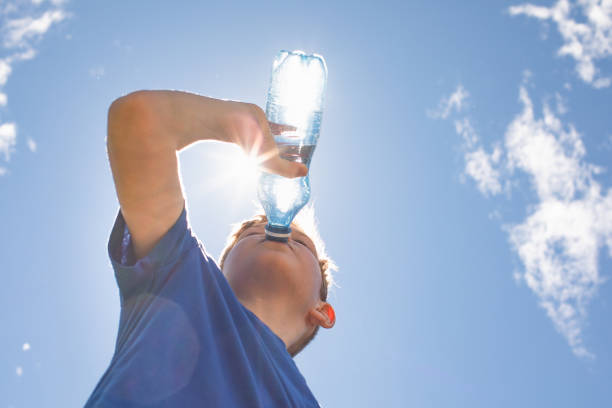
This is something you do not have to be stuck in the desert to experience. It may occur in a home. To remain safe:
- Keep drinking water as much as possible, even when you are not really thirsty.
- Consume foods that contain a lot of water, such as vegetables and fruits.
- Do not consume a lot of alcohol or caffeine.
- Take a bottle of water outside.
These practices make your body healthy. They make you ready in times of emergency as well.
Near miss by a Hiker
One hiker in Arizona fainted because of dehydration in 2020. She had not calculated her water requirement. Fortunately, she was discovered after a day by a ranger.
She survived, yet her case should be a lesson. What is the most that you can live without water? Not much time when you are not ready.
The reason Water Is a Global Problem
It does not guarantee the accessibility to clean water. There are millions of people in the world who suffer shortage of water every day. People in some areas walk to miles to find one bucket.
That is why the question of how long you will last without water is not a survival issue but a world crisis. Life can be saved because of clean water initiatives.
Conclusion
What is the duration for which you might live without water? Three or four days or so, or less or more. Stories about Mauro and Pablo reveal the power of the human spirit and the end of the capacities of the body.
Hyperhidrosis is a silent killer. It comes upon a person very quick and there are no exceptions. Knowing its symptoms and working out a strategy on how to respond.
You will be able to save yourself and those around you. Water is not only a resource, it is your lifeline. Only drink water and you won’t die.t just a resource it’s your lifeline. Stay hydrated, stay alive.
Health
Signs Your Body Is Lacking Vitamins: Understanding the Hidden Messages Your Body Sends
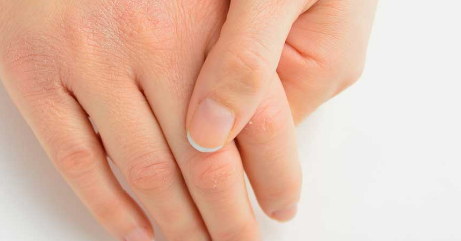
Vitamins are essential nutrients that play a vital role in keeping our bodies functioning smoothly. From supporting immunity to improving energy, maintaining healthy skin, and keeping our organs working properly — vitamins are at the heart of our overall well-being. But despite their importance, many people don’t realize they’re deficient until symptoms start to appear.
Vitamin deficiency can happen due to an unbalanced diet, digestive issues, stress, lifestyle habits, or certain medical conditions. Thankfully, your body gives you warning signs long before the problem becomes severe. Understanding these signs can help you take action early and protect your long-term health.
Below are some of the most common signs your body is lacking vitamins, along with how they relate to your nutritional needs.
1. Constant Fatigue and Low Energy Levels
Feeling tired all the time—even after sleeping well—can be a major sign of vitamin deficiency. The most common vitamins connected to low energy are:
- Vitamin B12
- Vitamin D
- Iron (not a vitamin, but linked to deficiency-related fatigue)
Vitamin B12 helps produce red blood cells and supports the nervous system. When levels drop, the body cannot carry enough oxygen through the blood, leaving you feeling exhausted. Low Vitamin D, especially during winter months, also contributes to chronic fatigue because it affects mood and muscle function.
2. Hair Loss and Weak Nails
If you’re noticing more hair falling out during brushing or showering, your body may be lacking:
- Biotin (Vitamin B7)
- Vitamin B12
- Vitamin D
- Zinc
Biotin is essential for hair strength and growth, while Vitamin D helps create new hair follicles. Some people also experience brittle nails or slow nail growth when these nutrients are low.
3. Dry Skin, Acne, and Premature Aging
Your skin is often the first place to show nutrient deficiencies. Vitamins responsible for skin health include:
- Vitamin A
- Vitamin C
- Vitamin E
- Omega-3 fatty acids (not a vitamin, but essential)
Dry, flaky skin, persistent acne, and fine lines may signal that your body isn’t getting enough nutrients to repair tissue and fight inflammation. Vitamin C also helps produce collagen — the protein that keeps skin firm and youthful.
4. Frequent Illness or Weak Immunity
If you catch colds easily or recover slowly, your immune system may be struggling due to low levels of:
- Vitamin C
- Vitamin D
- Vitamin B6
Vitamin C strengthens immune cells, while Vitamin D activates immune defenses. Low levels make your body more vulnerable to viruses and infections. If you’re frequently sick, your body could be signaling that it needs an immune-boosting nutrient reset.
5. Muscle Cramps and Weakness
Muscle pain, cramps, twitching, or weakness are often linked to deficiencies in:
- Magnesium
- Vitamin D
- Calcium
- Potassium
These nutrients work together to regulate muscle function. When one or more is low, you may experience sharp leg cramps, nighttime muscle spasms, or difficulty lifting heavy objects. These symptoms are especially common in people who sweat a lot, exercise intensely, or drink insufficient water.
6. Vision Problems, Especially at Night
Difficulty seeing clearly at night or dry, itchy eyes can signal a lack of Vitamin A.
This essential vitamin maintains eye moisture and supports the cornea. Severe deficiency may lead to night blindness and other eye disorders. If your eyes feel tired or strained often, it may be time to evaluate your vitamin intake.
7. Mood Swings, Anxiety, or Depression
Your mental health is deeply connected to your nutrition. Certain vitamins help regulate brain chemicals such as serotonin and dopamine. Deficiencies in the following vitamins can affect mood:
- Vitamin D
- Vitamin B12
- Vitamin B6
- Folate (Vitamin B9)
Low Vitamin D levels are strongly associated with seasonal depression, while B-vitamins help keep the nervous system stable. If you’re experiencing unusual mood swings or increased anxiety, a vitamin deficiency might be part of the issue.
8. Slow Wound Healing
If cuts or bruises take longer to heal than usual, you may be low in:
- Vitamin C
- Vitamin K
- Zinc
Vitamin C is essential for collagen production, which repairs skin tissue. Vitamin K helps your blood clot properly after injury. Slow healing is one of the clearest signs your diet may be lacking essential nutrients.
9. Tingling or Numbness in Hands and Feet
A “pins and needles” sensation often points to deficiencies in:
- Vitamin B12
- Vitamin B6
- Vitamin B1 (Thiamine)
These B vitamins support nerve health. Without them, nerves may become damaged, causing numbness, tingling, or burning sensations in the limbs. This symptom is particularly common in people with digestive issues or a vegan diet lacking supplements.
10. Cracked Lips or Mouth Ulcers
Painful cracks at the corners of your mouth or frequent mouth sores can be caused by low levels of:
- Vitamin B2 (Riboflavin)
- Vitamin B3 (Niacin)
- Vitamin B12
- Iron
Your lips and mouth heal quickly, making them sensitive to nutrient changes. Persistent sores are a clear signal that your body is missing key vitamins.
11. Pale or Yellowing Skin
Skin color changes often indicate:
- Vitamin B12 deficiency
- Iron deficiency
- Low folate levels
When your body lacks these nutrients, it struggles to produce red blood cells, leading to pale or yellowish skin (a condition called jaundice in severe cases). Fatigue and shortness of breath may accompany these symptoms.
How to Correct Vitamin Deficiencies
If you suspect vitamin deficiency, here are safe steps to improve your levels:
✔ 1. Improve Your Diet
Include more whole foods such as:
- Leafy greens
- Eggs
- Fish
- Fruits
- Nuts and seeds
- Whole grains
- Lean meats
✔ 2. Spend More Time in Sunlight
Just 15–20 minutes of sunlight helps boost Vitamin D naturally.
✔ 3. Consider Supplements
If dietary changes aren’t enough, supplements may help. However, always consult a healthcare provider before starting any supplement plan.
✔ 4. Get Blood Tests
A simple blood test can show which vitamins you’re lacking. This is the most accurate method.
✔ 5. Stay Hydrated
Water helps your body absorb vitamins and transport them effectively.
Final Thoughts
Your body is always communicating with you — through your skin, energy levels, mood, and even hair. The signs your body is lacking vitamins often start small, but if ignored, they can affect long-term health. By staying aware of these signals and making timely lifestyle changes, you can restore balance, improve immunity, and feel healthier overall.
Remember, good nutrition is not just about eating more — it’s about eating right. If you listen closely, your body will always tell you what it needs.
Health
Teething Rash in Babies: Causes, Remedies, and Prevention Tips

Introduction
When your child is about to get his or her first tooth, it is an interesting moment. To a lot of parents, however, it is accompanied by concern. On soft cheeks or chin, they see a red and bumpy rash caused by teething.
It is devastating when your small baby is not in a comfortable state. This article discusses the cause of teething rash, easy solutions to calm it, and suggestions to avoid the same. Let us make your baby smile as it is teething!
Teething Rash: What Is A Teething Rash?

A teething rash is a common skin problem of babies. It manifests in the form of red and rough patches, normally on the face, neck or chest. It occurs when babies drool a lot during teething.
The additional saliva rubs on their sensitive skin. An instance is when my friend, Sarah, realized that her 8-month-old baby, Emma, got a red chin after chewing on toys all day long. It does not harm them, but it makes the babies cranky.
Why does teething give a rash?
Drooling occurs in babies during teething. The gums are sore, and they eat everything. This slobber remains on their skin, and this irritates.
The enzymes contained in saliva possess the capability to destroy sensitive infant skin. Otherwise, it causes a condition known as teething rash. Emma drooled so that her chin turned red. It may be aggravated by cold or coarse fabrics.
Additional Reasons for Tooth Rash
Not always is that teething rash is due to drooling. The irritation can be added by food or milk adhering to the skin. Contributing factors could also be harsh soaps or wipes.
As an example, Sarah had applied scented wipes on Emma, and it aggravated the rash. A chapped skin by wind or dry air may also resemble a teething rash. When in doubt, make sure to see a doctor.
How To Recognize Teething Rash
A teething rash appears as little red bumps or chapped skin. It is normally on the cheeks, the chin, or on the neck. The skin may appear rough or even be warm. Contrary to eczema, it conditions are connected to drooling and teething.
In case the rash of the baby with the teething rash spreads or the rash contains pus, it may not be the teething rash. A brief assessment by the pediatrician will eliminate confusion.
Affect on Parents
The sight of a teething rash in your baby may be very overwhelming. You may also feel helpless and there may be questions like whether you are doing enough.
Sarah was crying because Emma could not get rid of her rash. Worry is common, but you are not the first one. When you have handy solutions, you can alleviate the symptoms in your baby and become a superhero parent once again.
Treatments to Calm a Tooth Rash
Fortunately, a teething rash can be readily treated by a tender touch. These are some of the effective solutions:
- Prevent the Skin to getting wet
Be careful of wiping drool by using a soft and clean cloth. To prevent irritation, Pat, not to rub. Sarah put a muslin cloth over Emma, and it did. Take wet bibs off frequently. There is less chance of a teething rash developing in dry skin.
- Use a Barrier cream
Use a baby-safe barrier cream (such as petroleum jelly or zinc oxide). These prevent the skin from saliva. Applying a very little amount of Vaseline on Emma’s chin, the red shifted within days. Opt to use fragrance-free products always.
- Proffer Teethers
Provide your infant BPA-free teethe toys. They keep gums occupied thereby reducing drooling. Emma adored to use her chilled teether and it made her gum feel better. You can make your baby safe by avoiding toys that can have small parts.
- Cleanse Gently
Clean the affected place with tepid water and soap that does not have any fragrance. Keep away hard wipes or soaps. Dry the skin later with pat. This prevents an increase in teething rash.
- Visit a Pediatrician
Ask a doctor in case the rash does not get better within several days. They can prescribe a low concentration of hydrocortisone cream. Adult creams should never be used without a doctor recommendation. Sarah visited the pediatrician, who she proved that it was nothing more than a teething rash.
Prevention Tips: Teething Rash

A teething rash is easier to prevent than you can imagine. This is how to maintain the smooth skin of your baby:
- Bibs Wisely
Place your infant’s bib (soft absorbent one). Replace it when wet. Cotton bibs did miracles with Emma. They slurp before it lies on the skin.
- Moisturize Regularly
Apply every day a baby moisturizer that does not contain fragrance. It enhances the skin barrier thus it is less likely to develop a teething rash. Use it on a dry and clean body of your baby.
- Avoid Irritants
Avoid using scented lotions or wipes or detergents. They may aggravate a teething mat. Use hypoallergenic products. Sarah changed to unscented wipes, and Emma’s skin thanked her.
- Have some Teethers available
Having a clean teether at the ready. It minimizes the amount of drooling and keeps your baby in good mood. Refrigerated (non-frozen) teething rings are an excellent idea when it comes to sore gums and the prevention of rashes.
How to be Concerned with a Tooth Rash

Teeth rashes improve within some days. However, move to a doctor when there is the spreading of the rash, oozing, or fever. It may be an infection or any other skin problem. Sarah was happy that when Emma had this strange rash; she consulted her pediatrician. You woad fuoud your parental instincts.
A Parents Voyage
Any parent does not want his/her baby to be uncomfortable. Teething rash can be so frustrating that you will be tempted to feel a failure, and not. The little actions, such as cleaning drool or a barrier cream, make a large difference. When the rash of Emma wore away, and her smile came again, Sarah was proud. You can do it, too!
Conclusion
A teething rash is one of the bumps in the parenting road. It develops due to the irritation of the skin of baby on drooling during teething. You can calm it down quickly with gentle care, such as ensuring one keeps the skin dry and applying safe creams.
It is easy to prevent it by wearing bibs, hydrating, and preventing irritants. A pediatrician will help you out whenever you are in doubt. Soon, the fussy moments will be over as you will hear your baby giggle with happiness. Love and learn, and you will beat the teething rash!
Health
Fennel Seeds for Digestion: Nature’s Remedy for a Healthier Gut
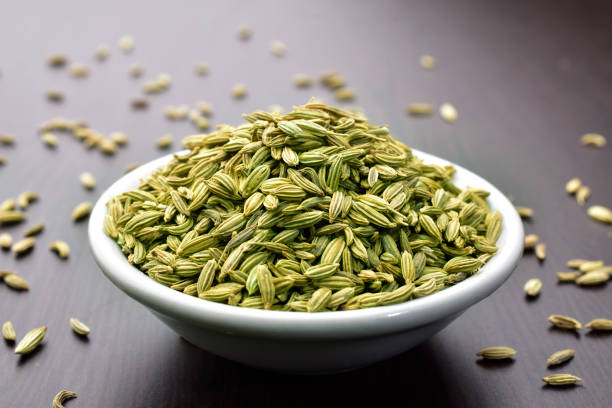
Introduction
Fennel seeds are mini golf balls of power. They have been centuries-old stomach soothers. Consider a hot soothing homemade solution left by grannies. These small seeds are sweet and licorice tasting. They are the natural fix to flatulence and abdominal pain. Let us see what fennel seeds can do to change your gut health.
Why Fennel Seeds prove to be a good friend to the gut
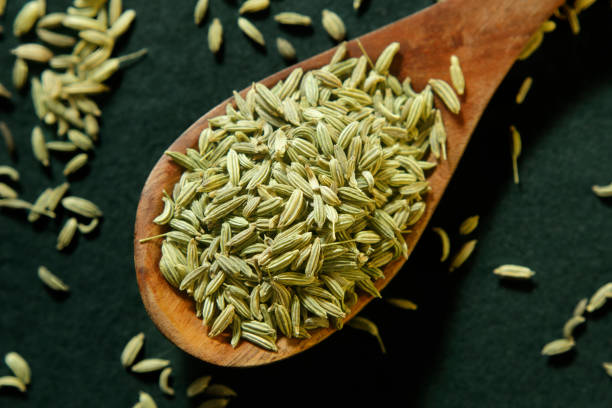
Fennel is very nutritious. They have vital oils such as anethole. Such oils relax the digestive tract. They decrease bloating and soothe cramps. After a stomach dinner,, anyone who has a sensitive stomach, fennel seeds can be considered to be a bedside.
Gnawing fennel seeds is an age-old tradition after meals. They are also used as a dessert in most cultures after food. This is not a habit of having fresh breath only. It initiates digestion, and this aids your body in the processing of food.
A Real-Life Story
Sarah is 32 years old and is a teacher; she has problems with bloating. She had a painful feeling after heavy meals. This affected her confidence. Her aunt advised fennel seeds one day.
Sarah also doubted, but chewed one teaspoon after dinner. She became less bloated in a few days. She was lighter and more cheerful. Her new remedy consists of fennel seeds.
The Magic of Fennel Seeds
Fennel seeds smooth the muscles of the stomach. This aids in the expulsion of gas traps. They increase the production of enzymes, too. This softens food digestion. It was not a surprise that fennel seeds are a staple in herbal medicine!
And they are high in fiber. Fiber makes you have fefewert bacteria. It helps to avoid constipation and brings about normal bowel movements. The healthier your gut, the happier you are.
Simple Methods of Using Fennel Seed
It is easy to integrate fennel seeds. After the meals, chew out a teaspoon. It is fast and efficient. There is also a possibility of brewing the fennel tea. Simply soak a spoonful of seeds in boiling water for ten minutes. Drink slowly to get immediate relief.
Soups or salads should have crushed fennel seeds added to them. Their taste improves food and helps digest it. You can bake them even in bread. It is a delicious approach to look after your gut.
An Earth-Shattering Discovery by Mark
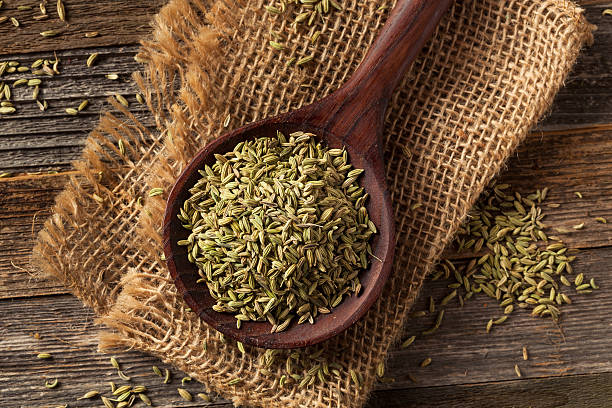
Spicy food was loved by Mark, a 45-year-old chef. But it gave me heartburn. He found fennel tea in the market in his area. A week later, he drank it up, and his heartburn ceased. Mark was revitalized. He has also introduced fennel seeds in his recipes. His customers adore the special taste and his stomach appreciates.
Science of Fennel Seeds
Research showss the advantages of fennel seeds. Studies indicate they interfere with levels of inflammation in the bowel. They also wrestle with dangerous bacteria. It maintains the balance of the digestive system. Fennel seeds are a natural antispasmodic. They help to stop abdominal cramps.
Most people are safe with them. It can be helpful to both kids and adults. First of all, pregnant women have to see a doctor. Never take big proportions as a first experiment to check the reaction of the body.
Fennel Seeds versus Over-the-Counter Remedies
What is the advantage of fennel seeds as compared to pills? They are natural and cheap. No severe chemicals. Most users show no side effects. As well, they are readily available in any grocery store. Some drugs are not gentle with thbodyb,, while fennel seeds are.
They are also delicious. It is better to have fennel tea rather than to take a pill. It is a little act that seems so mothering. You are nursing yourself back as nature used to do it.
Purchase and storage tips for Fennel seeds
Purchase fennel seeds in their entire form to have the freshest oness possible. Seek colorful green or brown seeds. The smell of those should be sweet and literally spicy. Do not use grey, lifeless seeds or seeds that have an odourless,as this indicates loss of potency.
Fennel seeds can be stored in an air-tight container. Store them in a dark, cool place. This retains their taste and advantages. They keep for a year when they are stored properly.
The family Trade
Maria was brought up to see her mom make a fennel tea. It is what their family used to settle games of upset stomach. In the adulthood, Maria continued the tradition. One taste of the fennel tea boosted her son out of tummy aches. This share of simple remedy united them.
Who can use Fennel seeds to his/her advantage?
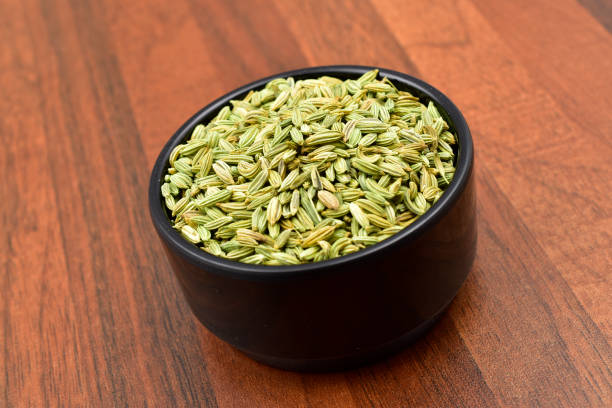
Fennel seeds can be used by anybody that has problems with digestion. They assist in bloat gas and indigestion. They are ideal to those who consume heavy or spicy foods. Small quantities can be consumed even by children having sensitive stomachs.
Fennel seeds do not only need to be used when there is a problem. They lead to overall health of the gut. Having a good gut increases your mood and energy. It is just a small step but a big reward.
Conclusion
Nature presents fennel seeds. They are easy, cheap, and work. Not only does Sarah swear by them because of the relief of bloating,, but Mark swears by them to heal heartburn.
Fennel seeds are miraculous, whether you chew them, drink them as a te,a or put them in the food. They are soft and tough. Give a test run now and feel the difference in the gut. This is a natural cure that your body will appreciate.
-
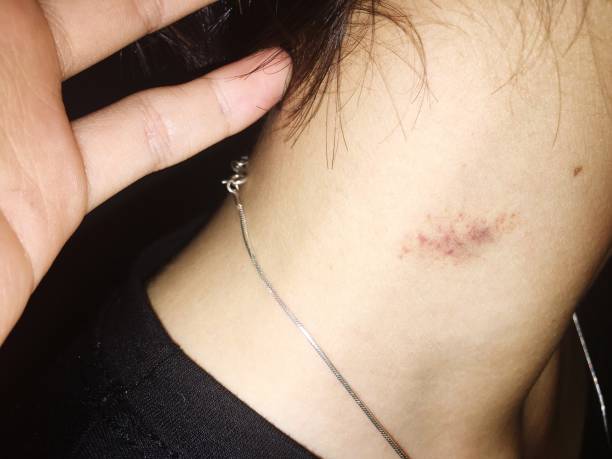
 Health6 months ago
Health6 months agoHow to Give a Hickey Fast: Quick Tips That Actually Work
-

 Health6 months ago
Health6 months agoHow to Get Unhigh Fast: Proven Ways to Sober Up Quickly
-
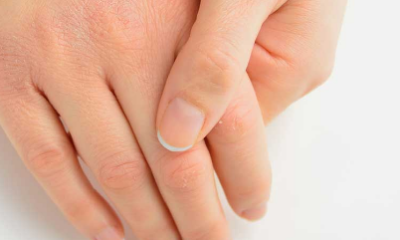
 Health2 months ago
Health2 months agoSigns Your Body Is Lacking Vitamins: Understanding the Hidden Messages Your Body Sends
-

 Health6 months ago
Health6 months agoTeething Rash in Babies: Causes, Remedies, and Prevention Tips
-

 Health6 months ago
Health6 months agoLemongrass Tea Every Day? Here’s What Happens to Your Body
-

 Health6 months ago
Health6 months agoIs Burping a Lot a Sign of Cancer? Signs, Symptoms, and Risk Factors Uncovered
-

 Health6 months ago
Health6 months agoFennel Seeds for Digestion: Nature’s Remedy for a Healthier Gut
-
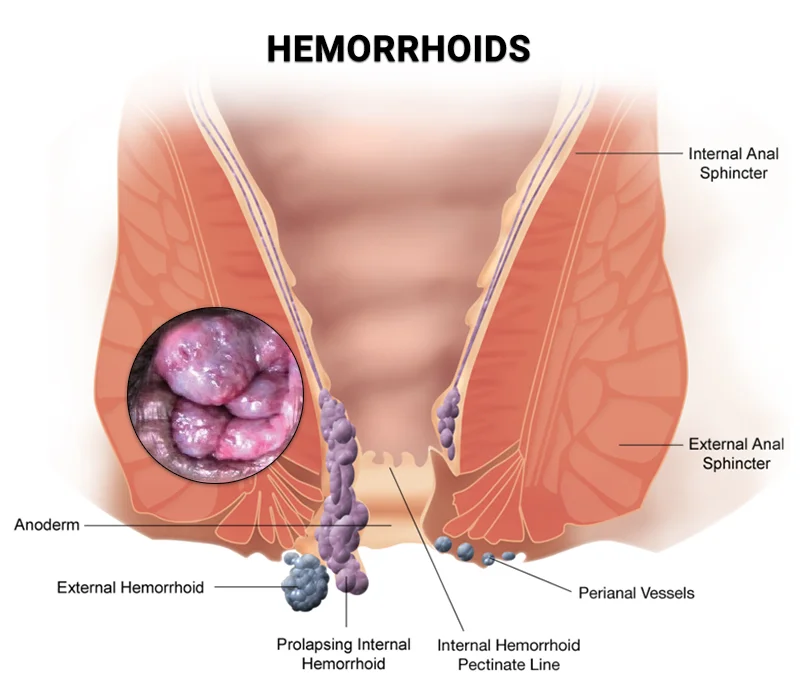
 Health6 months ago
Health6 months agoWhat Does a Hemorrhoid Look Like: A Clear Guide for Home Diagnosis
